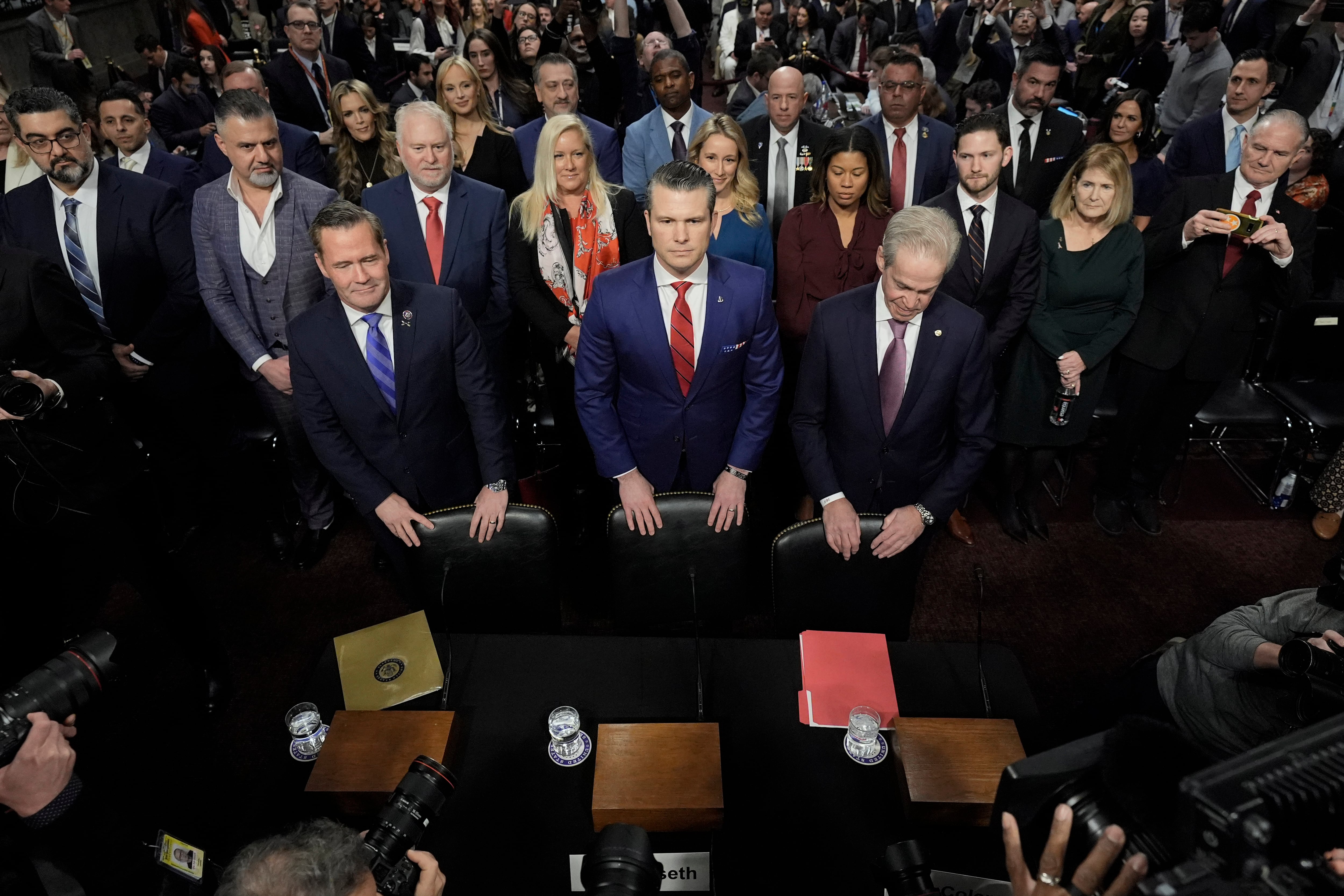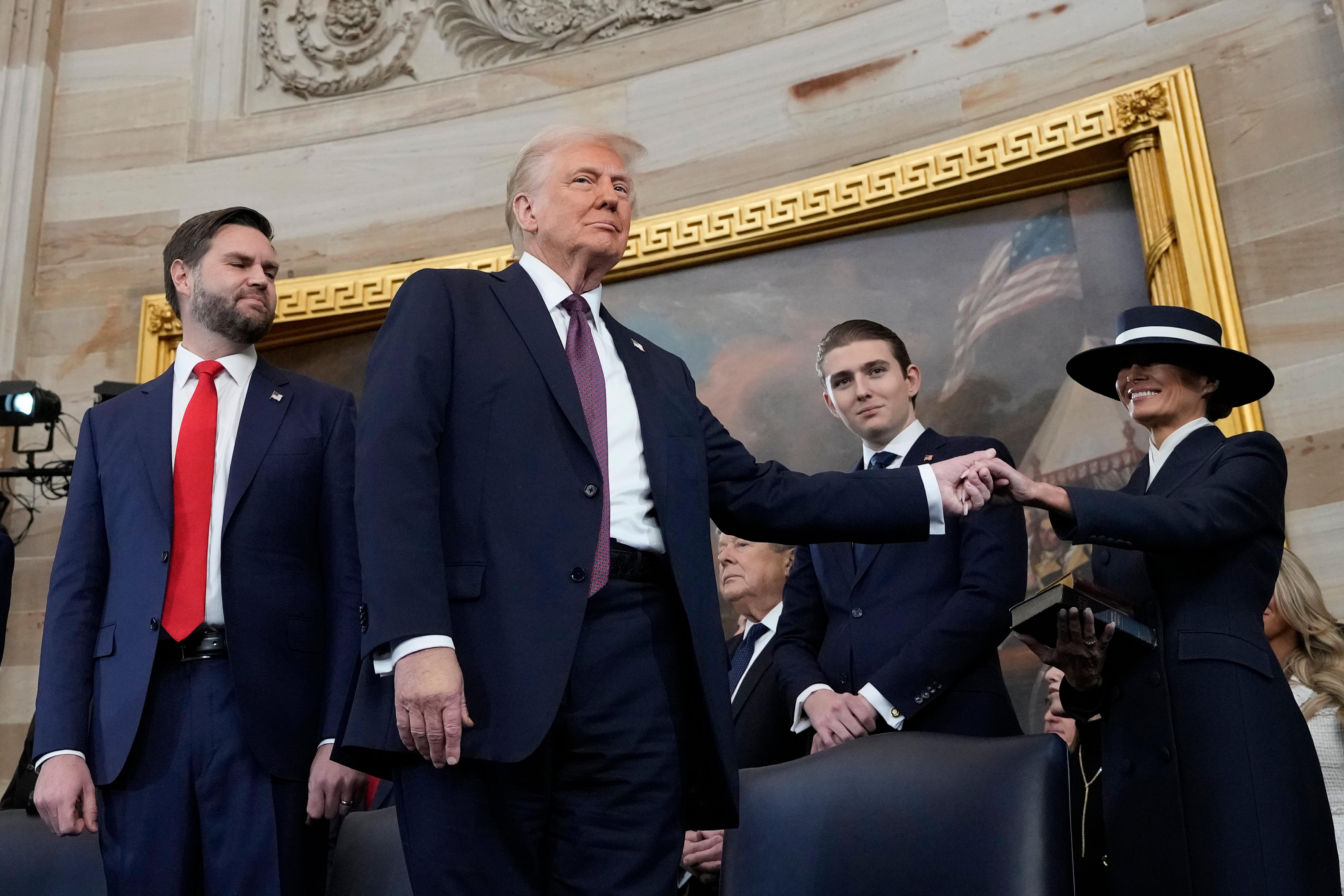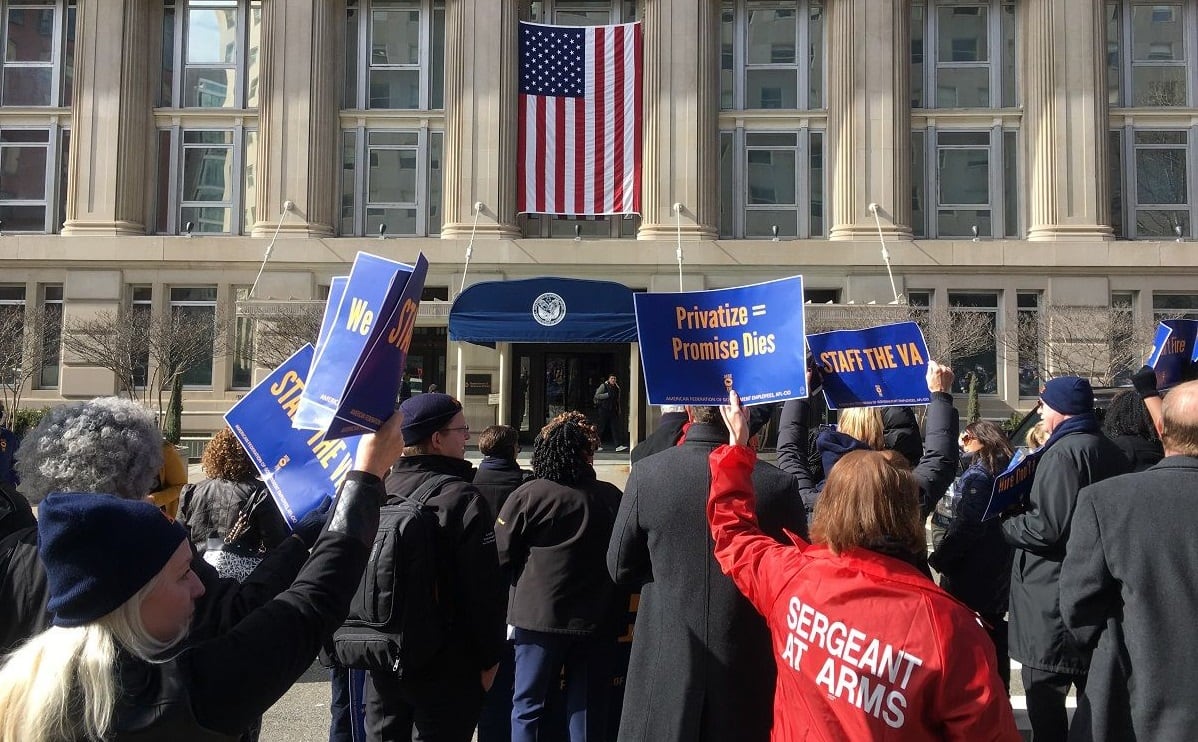WASHINGTON — The United States said Wednesday that China has a responsibility to exert much greater pressure on North Korea to prevent escalating tensions with a government that ignores the law and "provokes and provokes and provokes."
U.S. diplomatic and defense chiefs met their Chinese counterparts for security talks and pushed China to rein in companies that allegedly deal with its wayward ally North Korea in violation of U.N. sanctions.
Trump has been counting on China to use its economic leverage with the government of North Korean leader Kim Jong Un as American concern grows over the North's acceleration toward having a nuclear missile that can strike the U.S. mainland.
Trump tweeted ahead of Wednesday's talks that Beijing's efforts to sway Pyongyang weren't working. That comment came amid outrage in Washington over the death of Otto Warmbier days after the comatose American student was released from imprisonment in North Korea.
Defense Secretary Jim Mattis said Trump's commentary "represents the American people's view of North Korea right now. We see a young man go over there healthy and with a minor act of mischief" and come home on the verge of death.
"What you are seeing I think is the American people's frustration with the regime that provokes and provokes and provokes and basically plays outside rules, plays fast and loose with the truth," Mattis told a news conference.

Defense Secretary Jim Mattis speaks to Rear Admiral Wei Gang, The Deputy Commander of People's Liberation Army Eastern Theater and Navy Commander of East Sea Fleet, before a U.S. – China diplomatic and security dialog in the Jefferson Room at the State Department in Washington, D.C., June 21, 2017
Photo Credit: Army Sgt. Amber I. Smith/DoD
At the talks, Mattis and Secretary of State Rex Tillerson hosted Chinese foreign policy chief Yang Jiechi and Gen. Fang Fenghui, chief of the People's Liberation Army's joint staff department.
Their meeting took place against a backdrop of high tensions on the divided Korean Peninsula. On Tuesday, the U.S. flew two supersonic B-1B bombers there in a show of force. South Korea's Defense Ministry said the bombers engaged in routine exercises with its fighter jets aimed at deterring the North.
"China understands that the United States regards North Korea as our top security threat," Tillerson said. "We reiterated to China that it has a diplomatic responsibility to exert much greater economic and diplomatic pressure on the regime if they want to prevent further escalation in the region."
Tillerson called for increased efforts to curtail the North's illicit revenue streams of revenue that allegedly help fund its nuclear weapon and missile programs. He said the two sides agreed on the need for companies not to deal with North Korea in violation of U.N. sanctions, but did not specify any particular action China was promising to take.
Mattis said China "continues to work these issues."

Secretary of Defense Jim Mattis walks from the podium after a news conference with Secretary of State Rex Tillerson, following a Diplomatic and Security Dialogue Meeting with a Chinese delegation including State Counselor Yang Jiechi and military Chief of Joint Staff Fang Fenghui, at the State Department in Washington, Wednesday, June 21, 2017.
Photo Credit: Cliff Owen/AP
North Korea conducts about 90 percent of its trade through China, which maintains that it implements the U.N. sanctions properly.
Chinese officials were not immediately available for comment after the talks. Beforehand, China said it was hoping for "positive outcomes" from Wednesday's dialogue. It had long pushed for a resumption of U.S. negotiations with North Korea, which currently appears a remote prospect.
The talks also covered the South China Sea, where Beijing's island-building and construction of possible military facilities have rattled neighbors and caused tension with Washington. The officials also discussed U.S.-Chinese military cooperation to reduce risk of conflict, as well as efforts to defeat the Islamic State group.
Divisive trade issues will be dealt with at a later date.
Like past presidents, Trump is finding the U.S. has limited scope for punishing North Korea, particularly over the arrest of U.S. citizens. Three Americans remain in detention in the reclusive country.
Trump's administration is considering a ban on Americans visiting North Korea. That would only slightly add to the North's isolation and loss of revenue. The route to inflicting significant economic pain on Kim's government remains through China.
Washington has one threat it can use with Beijing: the possibility of "secondary" sanctions that go after Chinese companies doing business in North Korea. Such a move risks fraying relations between the world's two biggest economies.
The Chinese state-run Global Times warned in an editorial that if Washington imposes sanctions against Chinese enterprises "it will lead to grave friction between China and the U.S."





